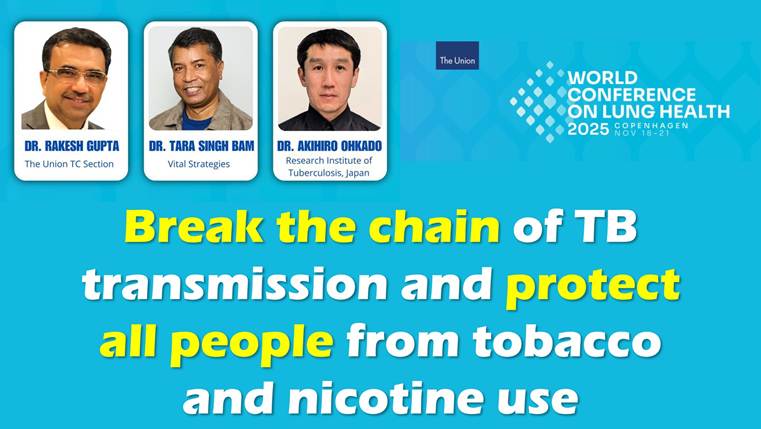Tobacco and Nicotine Threaten TB Control, Experts Warn
Tobacco and nicotine use remain major barriers to global efforts to end tuberculosis (TB) and advance sustainable development goals, according to experts at the Union World Conference on Lung Health.
The 2025 WHO Global TB Report identifies tobacco smoking as one of the top five risk factors for TB worldwide, particularly in countries with high tobacco prevalence such as Indonesia. Tobacco is also a key contributor to heart disease, stroke, cancers, diabetes, and chronic respiratory illnesses.
“Over eight million people die from tobacco use each year. This epidemic is entirely preventable,” said Dr Tara Singh Bam, Asia Pacific Director for Tobacco Control at Vital Strategies.
She emphasised the importance of supporting users to quit, protecting non-users, and integrating tobacco cessation into TB programmes.
Tobacco smoking not only increases the risk of TB infection but also undermines treatment success, heightens clinical severity, and delays diagnosis.
Dr Akihiro Ohkado, Head of Epidemiology at the Japan Anti-TB Association, noted that stopping tobacco use could prevent up to 15 per cent of new TB cases.
Experts highlighted nicotine’s addictive potential, comparing it to cocaine and heroin, and called for systematic screening and cessation support at every TB care visit. Recording tobacco use in treatment registers and providing counselling were recommended as practical strategies to reduce TB-related risks.
Passive smoking remains a significant concern, responsible for one in ten tobacco-related deaths annually, reinforcing the need for smoke-free environments.
Experts also warned against interference from the tobacco industry, citing the WHO Framework Convention on Tobacco Control, which mandates protecting public health policy from commercial interests.
Dr Bam concluded: “Breaking the chain of TB transmission requires protecting people from tobacco and nicotine. Effective tobacco control, integrated with TB care, is essential to saving lives and meeting global health targets.”
The conference emphasised evidence-based actions including awareness campaigns, early TB detection, linkage to care, and full implementation of WHO-recommended tobacco control measures.
These steps are vital to safeguard public health, improve TB outcomes, and achieve the #EndTB and broader SDG agenda.



